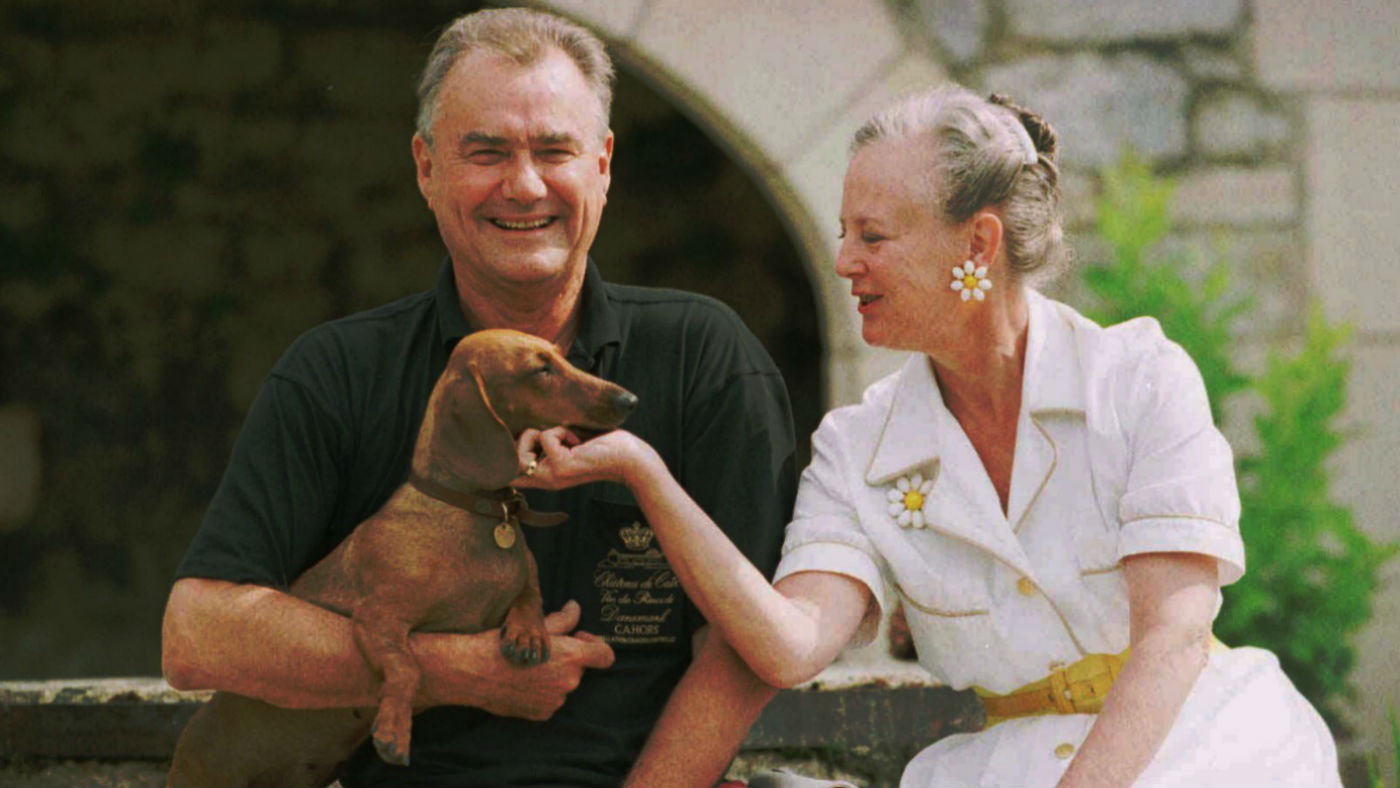Prince Henrik: consort of Denmark’s queen dies
French-born royal outraged Danes by refusing to be buried next to his wife

A free daily email with the biggest news stories of the day – and the best features from TheWeek.com
You are now subscribed
Your newsletter sign-up was successful
Prince Henrik of Denmark, the husband of Queen Margrethe, has died at the age of 83.
In a statement, the Danish Royal House confirmed that the French-born prince died “peacefully in his sleep”, two weeks after being diagnosed with a benign tumour. “Her Majesty the Queen and the two sons were at his side.”
The prince was a divisive figure in his adopted country. A flamboyant dresser with a passion for fine food, wine, poetry and art, he was “both loved and criticised by the Danes for his aristocratic manner,” says Reuters.
The Week
Escape your echo chamber. Get the facts behind the news, plus analysis from multiple perspectives.

Sign up for The Week's Free Newsletters
From our morning news briefing to a weekly Good News Newsletter, get the best of The Week delivered directly to your inbox.
From our morning news briefing to a weekly Good News Newsletter, get the best of The Week delivered directly to your inbox.
Born Henri Marie Jean Andre de Laborde de Monpezat to a family of titled industrialists in south-west France in 1934, the future royal spent the first five years of his life in Vietnam, where his family had business interests.
He remained fascinated with the Far East for the rest of his life, returning to Hanoi to study as a teenager and later becoming fluent in Vietnamese and Chinese.
He joined the French embassy in London in 1962, leaving in 1967 to marry the then-princess Margrethe.
The royal couple set up home in Denmark, where “Henri” became Henrik. In the two years that followed, they welcomed two sons, Frederik and Joachim.
A free daily email with the biggest news stories of the day – and the best features from TheWeek.com
Never one for mincing words, Prince Henrik made his dissatisfaction with his title extremely public in the years after Queen Margrethe ascended to the throne in 1972.
In a tradition similar to that of the British royal family, the husbands of Danish queens are given the title of prince consort rather than king, as awarding them the higher role would elevate them above their wives in the traditional royal hierarchy.
The controversy took on a new dimension last August when the prince declared that he would not be buried at Roskilde Cathedral, the resting place of Danish monarchs and their spouses for the past 459 years, because of his long-standing grievance.
“The queen already had a specially designed sarcophagus waiting for the couple,” says The Independent. She is said to have accepted her husband’s decision.
Prince Henrik formally renounced the title of Prince Consort in 2016 when he retired from public duties. A year later, he was diagnosed with dementia.
Last week, it was reported that his health had taken a turn for the worse. Crown Prince Frederik cut short his visit to the Winter Olympics in South Korea to be with his father at Fredensborg Palace, where he spent his final days.
-
 What are the best investments for beginners?
What are the best investments for beginners?The Explainer Stocks and ETFs and bonds, oh my
-
 What to know before filing your own taxes for the first time
What to know before filing your own taxes for the first timethe explainer Tackle this financial milestone with confidence
-
 The biggest box office flops of the 21st century
The biggest box office flops of the 21st centuryin depth Unnecessary remakes and turgid, expensive CGI-fests highlight this list of these most notorious box-office losers
-
 Greenland’s capital becomes ground zero for the country’s diplomatic straits
Greenland’s capital becomes ground zero for the country’s diplomatic straitsIN THE SPOTLIGHT A flurry of new consular activity in Nuuk shows how important Greenland has become to Europeans’ anxiety about American imperialism
-
 Epstein files topple law CEO, roil UK government
Epstein files topple law CEO, roil UK governmentSpeed Read Peter Mandelson, Britain’s former ambassador to the US, is caught up in the scandal
-
 Iran and US prepare to meet after skirmishes
Iran and US prepare to meet after skirmishesSpeed Read The incident comes amid heightened tensions in the Middle East
-
 Israel retrieves final hostage’s body from Gaza
Israel retrieves final hostage’s body from GazaSpeed Read The 24-year-old police officer was killed during the initial Hamas attack
-
 China’s Xi targets top general in growing purge
China’s Xi targets top general in growing purgeSpeed Read Zhang Youxia is being investigated over ‘grave violations’ of the law
-
 Panama and Canada are negotiating over a crucial copper mine
Panama and Canada are negotiating over a crucial copper mineIn the Spotlight Panama is set to make a final decision on the mine this summer
-
 Europe moves troops to Greenland as Trump fixates
Europe moves troops to Greenland as Trump fixatesSpeed Read Foreign ministers of Greenland and Denmark met at the White House yesterday
-
 Why Greenland’s natural resources are nearly impossible to mine
Why Greenland’s natural resources are nearly impossible to mineThe Explainer The country’s natural landscape makes the task extremely difficult